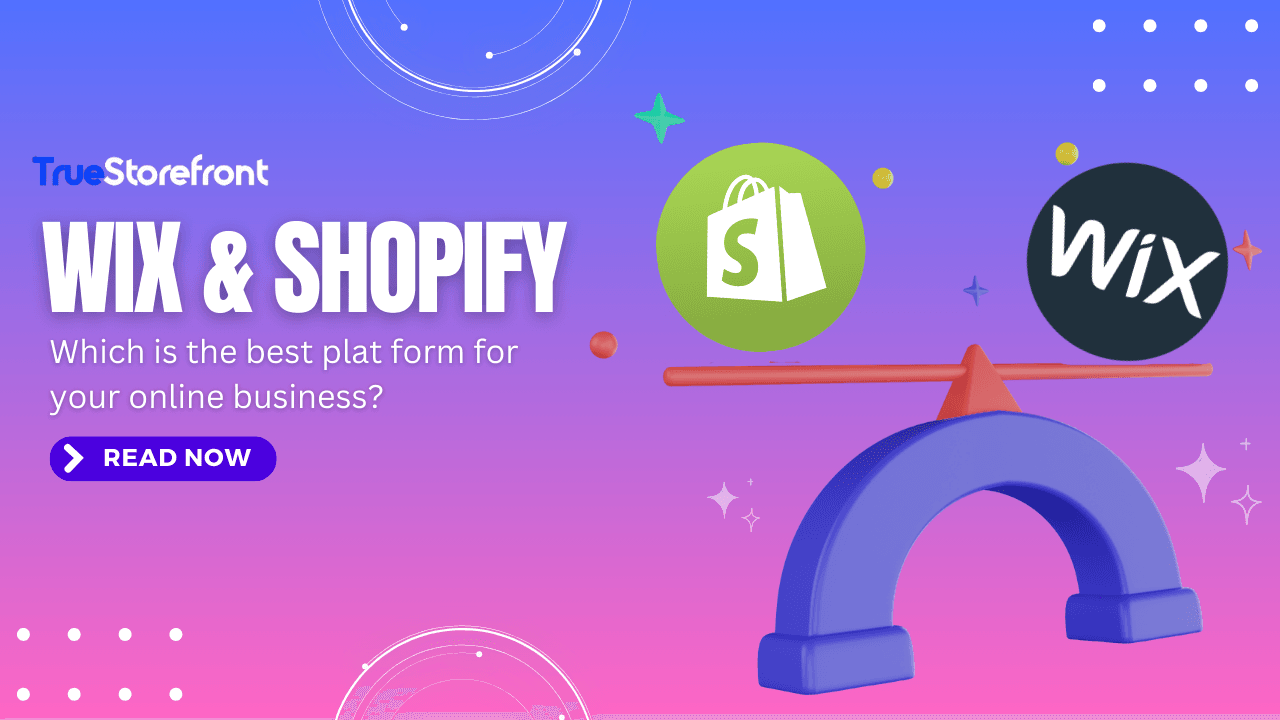Wix and Shopify are two popular names when choosing the best ecommerce platform for online business. With multiple advanced features to help you grow and expand your online business, both the platforms have established notable niches in the digital market.
But even as 2025 approaches, the question of whether the platform is better suited to your specific requirements remains. This post compares Wix and Shopify in more depth, looking at their pros, cons, and this year's innovations to help you decide.
I. Overview about Wix and Shopify
1.1. What is Wix?
Wix is a well-known cloud-based website builder that makes it simple for people to make websites without knowing how to code. Because of its intuitive drag-and-drop interface, even non-techies and novices may utilize it.
Notable features include mobile applications, e-commerce facilities, attractive video backdrops, title animations, online storage for your site materials, and even a helpful, free service tier. Furthermore, in the constantly expanding market for website-building services, its Editor X interface stands out as one of the most user-friendly, sophisticated, and potent.
1.2. What is Shopify?
Shopify is a feature-rich e-commerce platform that can be used to launch, run, and expand a company. Users may create online storefronts, control sales, advertise to consumers, and take payments using it. Shopify's dominance in the e-commerce space is based on the experiences of millions of entrepreneurs, providing tools and services to help small and large enterprises alike.
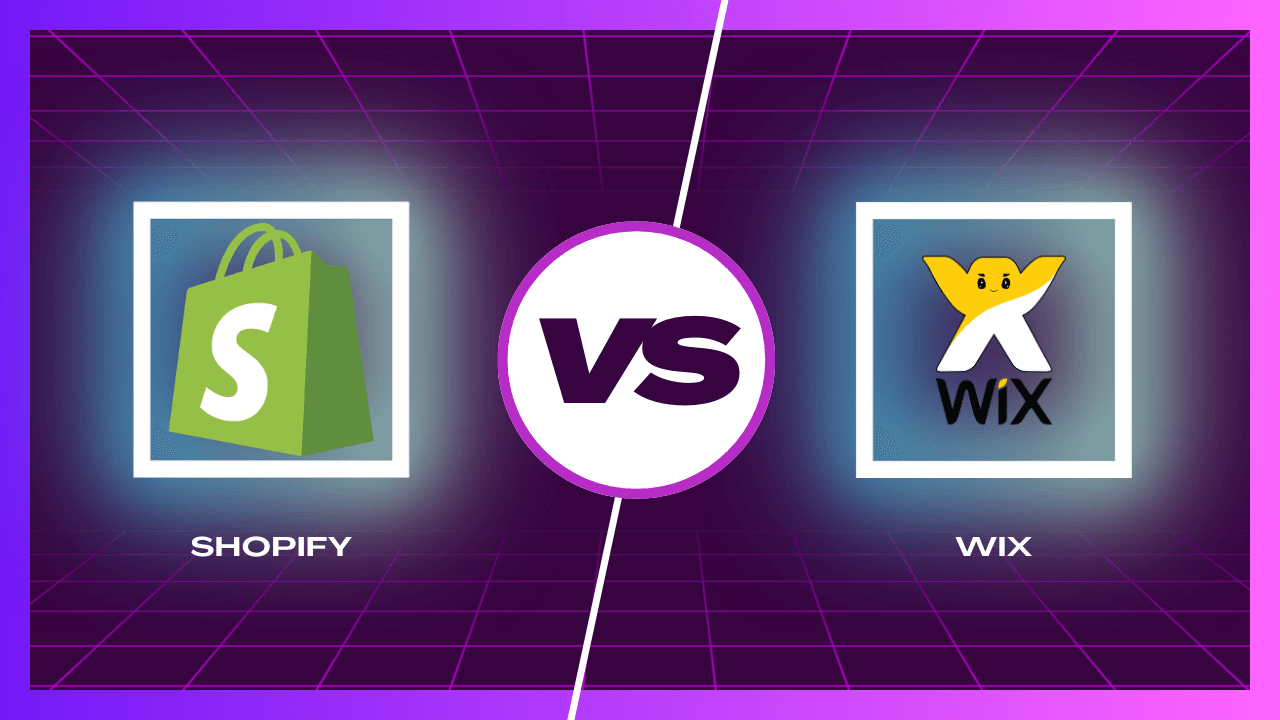
1.3. Quick comparison: Wix and Shopify
| Features | Wix | Shopify |
|---|---|---|
| Rating | 4.3🌟/5.0 | 4.3🌟/5.0 |
| Pricing | 0$-159$/month (free plan is available) | 29$-299$/month (no free plan) |
| Free Trial | 14 days | 3 days |
| Payment processing fee | 2,9%+30 cents (other fees depend on region areas and payment gateways) | From 2,4%-2,9%+30 cents (other fees depend on region areas and payment gateways) |
| Templates | 900+ | 200+ |
| Marketing tools | Includes automated workflows, four lead-capture forms with up to 10 fields each, a site chat feature, a personalized SEO checklist, and an AI Meta Tag Creator for optimizing pages. | Provides email campaigns, discount codes, social media integrations, Google Ads support, robust SEO features, third-party marketing apps, and detailed analytics for performance tracking. |
| Support service | Phone help during business hours; email support; 24/7 chat support; and online forum support. | 24/7 email support, phone support; online forum assistance. |
II. Which is the better platform for your store?
2.1. Pricing
When it comes to price, Wix plans are cheaper than Shopify plans. While Shopify does not offer a free plan, Wix can do that with a 7 days trial. Let's take a look at the price comparison table:
| Features | Wix | Shopify |
|---|---|---|
| Plans | Wix offers 4 plans: Light (17$/mo); Core (29$/mo); Business (36$/mo); and Business Elite (159$/mo). | Shopify offers 4 plans: Basic (25$/mo); Shopify (65$/mo); Advance Shopify (399$/mo); Shopify Plus (2,300$/mo). |
| Starting price | 159$/month | 399$/month |
| Highest price | No | Shopify Plus (starting at $2,300/month) |
| Enterprise Plan | 2,9%+30 cents (other fees depend on region areas and payment gateways) | From 2,4%-2,9%+30 cents (other fees depend on region areas and payment gateways) |
| Transaction Fees | No fees with Wix Payments but it may apply with other gateways. | 2% for Basic, 1% for Shopify and 0,6% for Advance. |
| Bandwidth | Limited in lower plans, Unlimited in higher plans. | Unlimited with all plans |
| Number of Products | Unlimited (Business Elite) | Unlimited with all plans |
| Best for | Small businesses, personal websites | E-commerce-focused businesses |
The four main Wix plans are intended for people who require a business website but do not intend to take online payments. A free custom domain, an SSL certificate, and 2 GB to an infinite amount of storage are all included in these plans. A professional logo and an events calendar app are additional features included with the Core, Business, and Business Elite versions.
In addition to these options, Wix also provides a free plan. However, the free plan lacks e-commerce functionality, has Wix branding, and has limited features.
If you want to build a fully functional, e-commerce-ready website with Shopify, you’ll need to choose from three plans: Basic, Shopify and Advanced. All of them come with unlimited products, 24/7 support, the ability to sell on online marketplaces and social media, discount codes, abandoned cart recovery, gift cards, shipping labels, fraud analysis and Shopify POS Lite. Although the Shopify Plus plan is expensive, you can unlock all unlimited features of Shopify that can help you to grow your business effectively.
-> Read more: Shopify Monthly Cost Breakdown in 2024
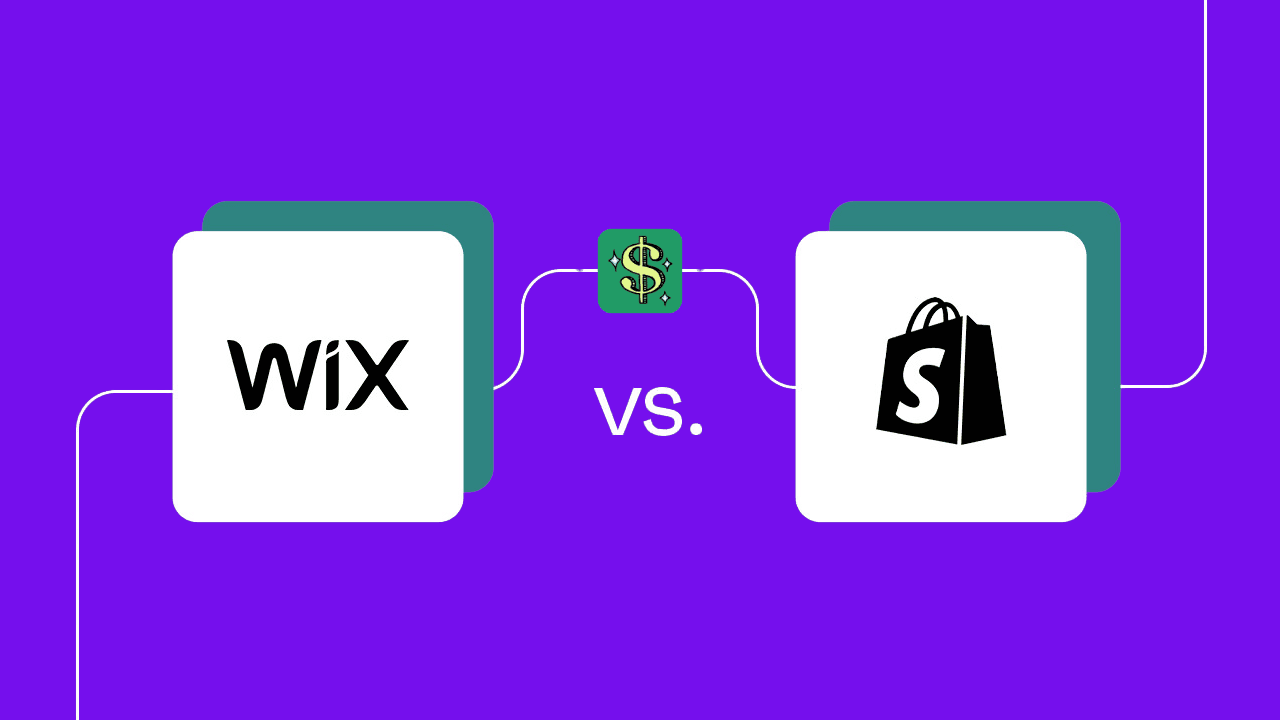
2.2. User-friendly interface
There are several noticeable distinctions between Wix and Shopify's user-friendly interfaces.
Wix is well known for its user-friendly drag-and-drop editor, which enables anybody without any coding experience to quickly move and modify objects on their website. With the great creative flexibility this platform provides, users may personalize almost every part of their website. The procedure may be made even simpler by the Wix ADI (Artificial Design Intelligence), which creates a website based on the answers users provide to a few questions.
On the other hand, Shopify offers a simple and well-organized interface made especially for online sales. Compared to Wix, Shopify's UI is more organized, providing less room for customization but guaranteeing uniformity and effectiveness in the administration of goods, orders, and clients. Additionally, Shopify has a sizable app store, which enables the integration of more sophisticated features but may potentially make the UI more complex as more apps are added.
All things considered, Wix is the best option for consumers looking for creative flexibility and a simple setup, whilst Shopify is more appropriate for e-commerce enthusiasts who are accustomed to a little more complicated but effective system.
2.3. Advanced features
- Multichannel Sales - Shopify:
Shopify is the more robust platform for multichannel selling, offering extensive integrations with major platforms like Amazon, eBay, Facebook, Instagram, and Pinterest, all managed from a single dashboard. It also provides built-in social media integrations and a vast app store for additional marketplace connections, ensuring comprehensive support.
In contrast, Wix offers some multichannel features but lacks the breadth of Shopify's integrations, making it less suitable for merchants needing a broad and integrated multichannel presence.
- Payment processing - Shopify:
Shopify offers a more comprehensive payment processing solution than Wix, with its own gateway, Shopify Payments, supporting a wide range of methods and seamless integration. Shopify also integrates with numerous third-party gateways, though it charges transaction fees for these.
Wix provides flexibility through Wix Payments and third-party integrations like PayPal and Stripe, without additional fees for its own gateway. However, Wix's options are less extensive.
For businesses needing advanced payment processing and more payment options, Shopify is the superior choice.
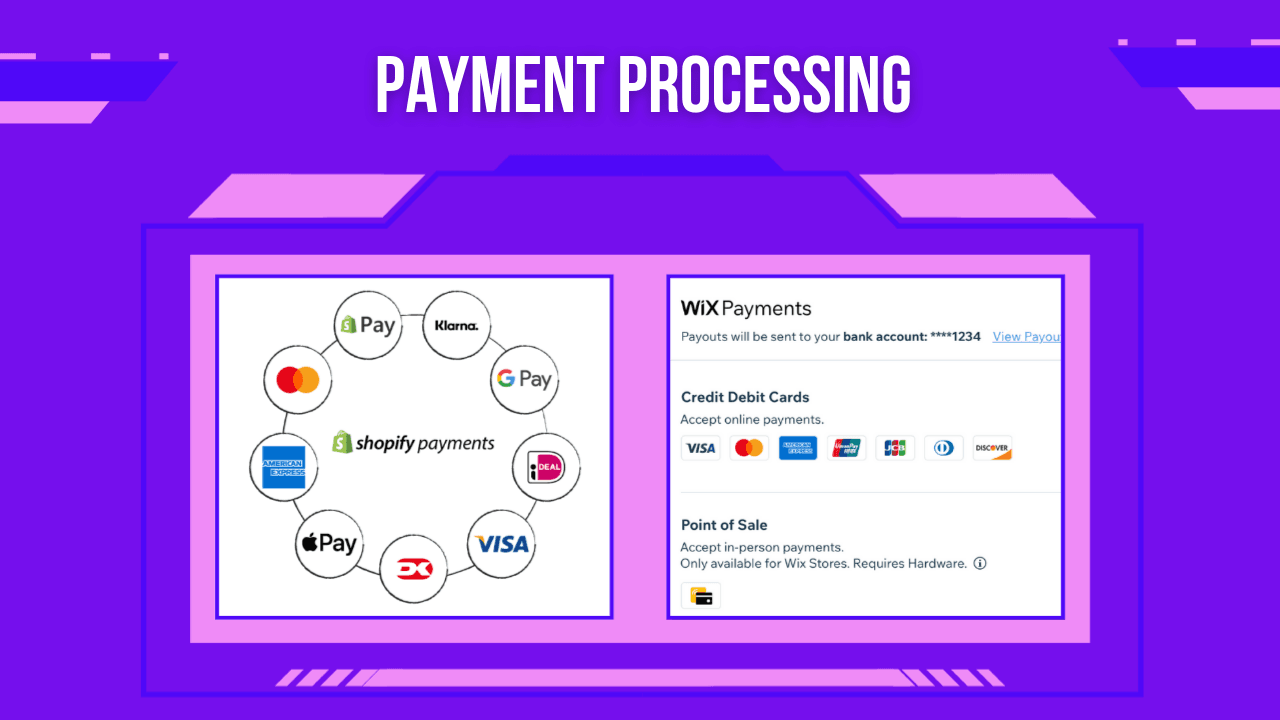
- Safety:
Both Wix and Shopify offer strong security with free SSL certificates, but Shopify provides more comprehensive protection.
Shopify is PCI DSS compliant across its own and third-party gateways, includes advanced fraud prevention tools, and has a robust security infrastructure with regular updates.
Wix is also PCI compliant with its own gateway but relies on third-party gateways for compliance. While Wix meets essential security standards, Shopify's extensive features and focus on e-commerce make it the better choice for businesses handling financial transactions.
- Templates:
Wix offers a wide variety of 900+ templates with extensive design flexibility, allowing users to create highly customized websites across different categories. Its drag-and-drop editor provides significant creative freedom, although responsiveness may vary depending on customizations.
In contrast, Shopify offers a smaller selection of around 100 themes that are specifically optimized for e-commerce. While Shopify’s themes are less customizable, they ensure consistent functionality and are fully responsive, making them ideal for online stores.
Wix is better for those seeking creative control, while Shopify is the superior choice for streamlined, e-commerce-focused designs.
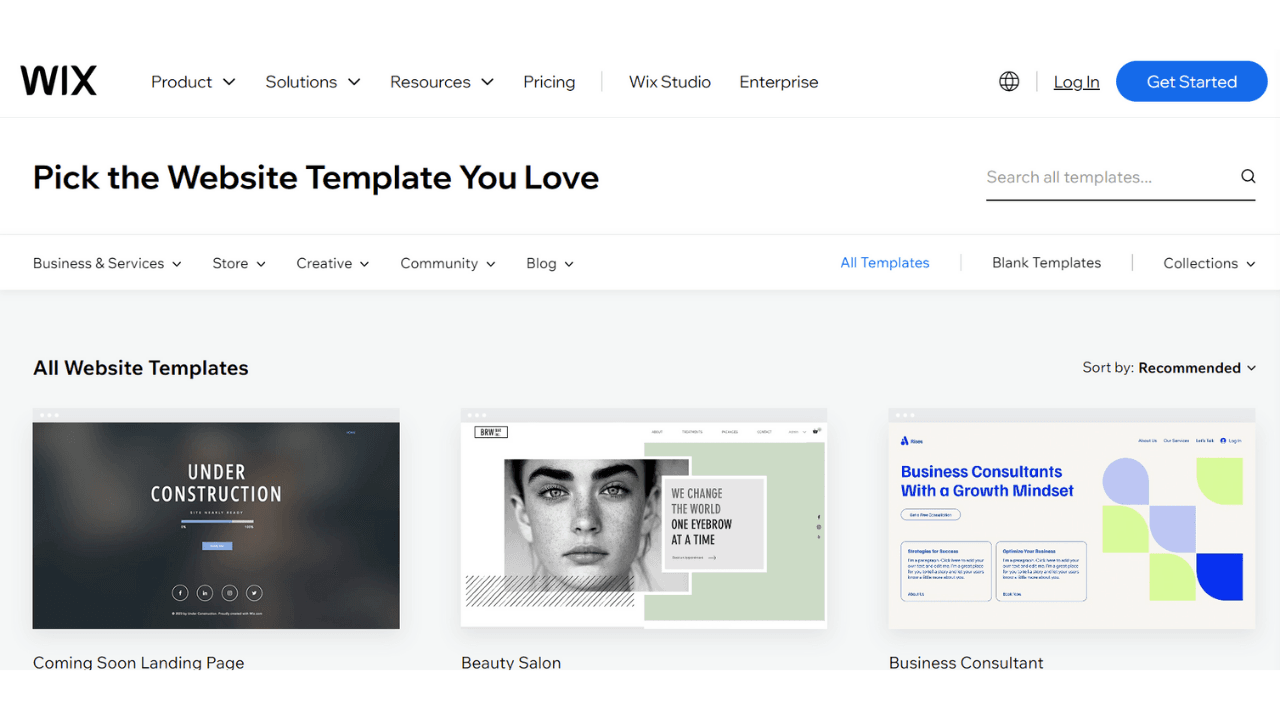
- App integrations:
Shopify offers a more extensive and specialized app store with over 8,000 apps focused on enhancing e-commerce functionality, allowing for greater customization and advanced tools for online stores.
In contrast, Wix has a smaller app market with around 300 apps designed for various website types, emphasizing simplicity and ease of use. While Wix provides versatility for different kinds of websites, Shopify's robust app integrations make it the better choice for businesses focused on e-commerce.
- Mobile Optimization:
Shopify excels in mobile optimization with fully responsive themes that automatically adjust to different screen sizes, ensuring consistent performance and a smooth shopping experience on mobile devices, which is crucial for e-commerce.
Wix offers a dedicated mobile editor that allows for detailed customization of the mobile version of a site, but this may require manual adjustments to achieve optimal performance.
While Wix provides flexibility, Shopify's emphasis on seamless mobile functionality makes it the better choice for businesses focused on delivering a top-notch mobile shopping experience.
2.4. Promotional instruments
Shopify excels in promotional instruments, offering advanced marketing tools and comprehensive SEO features tailored for e-commerce. Its platform includes robust tools for email marketing, discount codes, and integrations with major advertising platforms like Google Ads and Facebook Ads. Shopify also supports advanced SEO functionalities such as customizable meta tags, clean URL structures, and integration with Google Analytics.
In contrast, Wix provides user-friendly marketing tools like email campaigns and social media integration, along with basic SEO features such as customizable meta titles and descriptions. However, Wix’s tools are more suited for beginners and may lack the depth needed for complex marketing and SEO strategies.
Overall, Shopify is better for businesses seeking advanced and scalable promotional capabilities, while Wix is ideal for those preferring simplicity and ease of use.
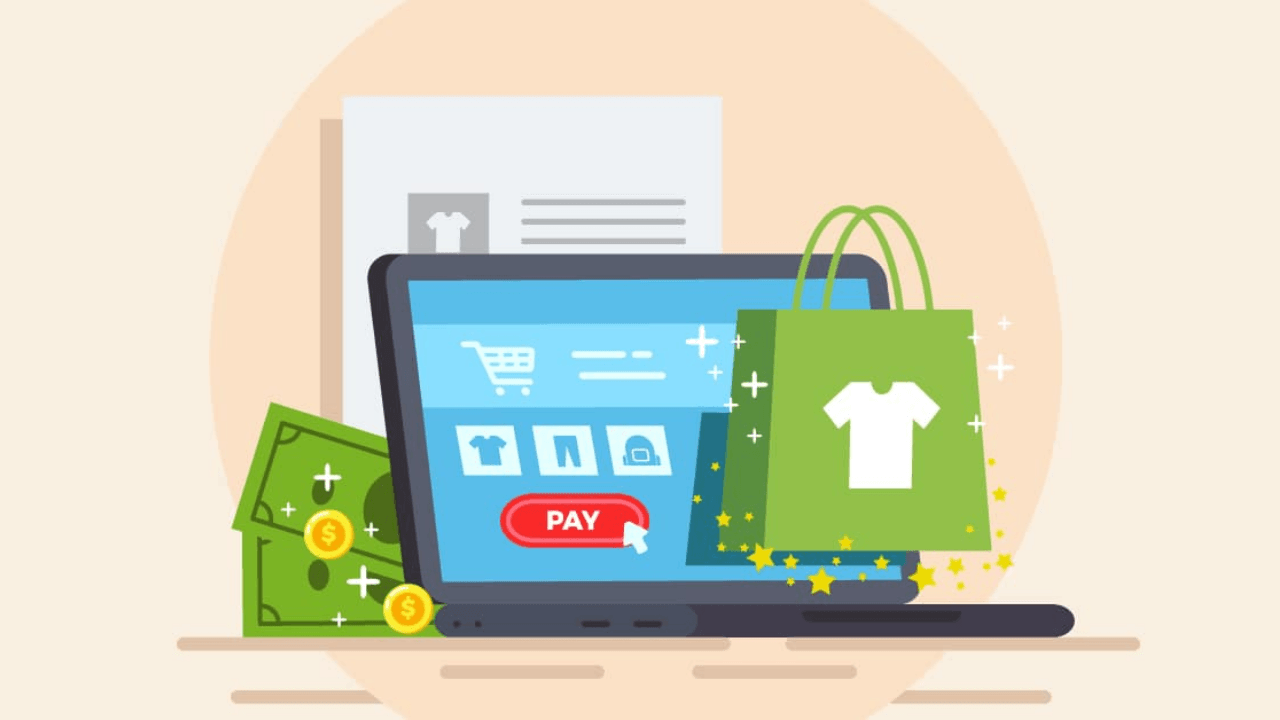
2.5. Responsive support
When comparing support services between Wix and Shopify, both platforms offer robust customer support, but with some distinctions.
Wix provides a range of support options, including a comprehensive help center, community forums, and direct customer support through email and live chat. However, phone support is limited, and response times can vary depending on the complexity of the issue.
Shopify, on the other hand, offers 24/7 customer support through multiple channels, including phone, email, and live chat, ensuring users can get assistance at any time. Shopify also has an extensive help center and community forums, along with access to a wide network of experts and developers for more specialized support.
While Wix offers solid support, Shopify’s 24/7 availability and broader range of support channels make it the better choice for businesses needing consistent and immediate assistance.
III. Choose your best eCommerce platform
Choosing between Wix and Shopify depends on your specific needs and priorities. However, we recommend you to use Shopify.

Although it has high costs, it offers several advantages, especially if you are focused on developing your online store. It offers you many advanced e-commerce tools, such as inventory management and extensive marketplace integrations. Shopify also offers strong SEO features, a rich app store for marketing, and fully mobile-optimized themes. Additionally, it provides 24/7 customer support through various channels, ensuring timely assistance.
Overall, Shopify is better suited for businesses seeking to optimize and expand their online stores effectively.
